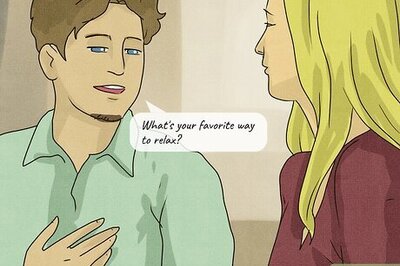
views
An Austrian study reports that when we're stressed our empathy increases and we're more inclined to help others, although we don't always have enough perspective to evaluate the situation.
Researchers at the University of Vienna in Austria sought to understand our reaction to others in highly stressful situations by studying the neural mechanisms underlying this behavior.
The challenge put to the study's 80 participants was to empathize with others, while having to carry out complex tasks quickly under psychological pressure created by negative feedback on performance.
The level of stress during the experiment was measured by the increase in cortisol levels.
In the second phase of the experiment, the participants were shown photos of patients undergoing painful medical procedures and had to imagine how they felt. To measure the participants' ability to regulate their emotions, the researchers gave additional information for some of the photos, such as the fact that the patient had been given an anesthetic.
Lastly, the participants were asked to give a sum of money of their choice to a stranger.
The findings have been published in the journal Social, Cognitive and Affective Neuroscience. They showed that empathy, which shows up in an MRI brain scan, is much stronger in stressed people, no matter what type of information they are given about the situation.
Also, the greater the emotional reaction in the brain, the more money was given by the stressed-out participants.
The researchers concluded that while stress encourages altruism, generosity and sociability, it can also lead to an inappropriate reaction to an actual situation, due to a lack of judgement and perspective.


















Comments
0 comment